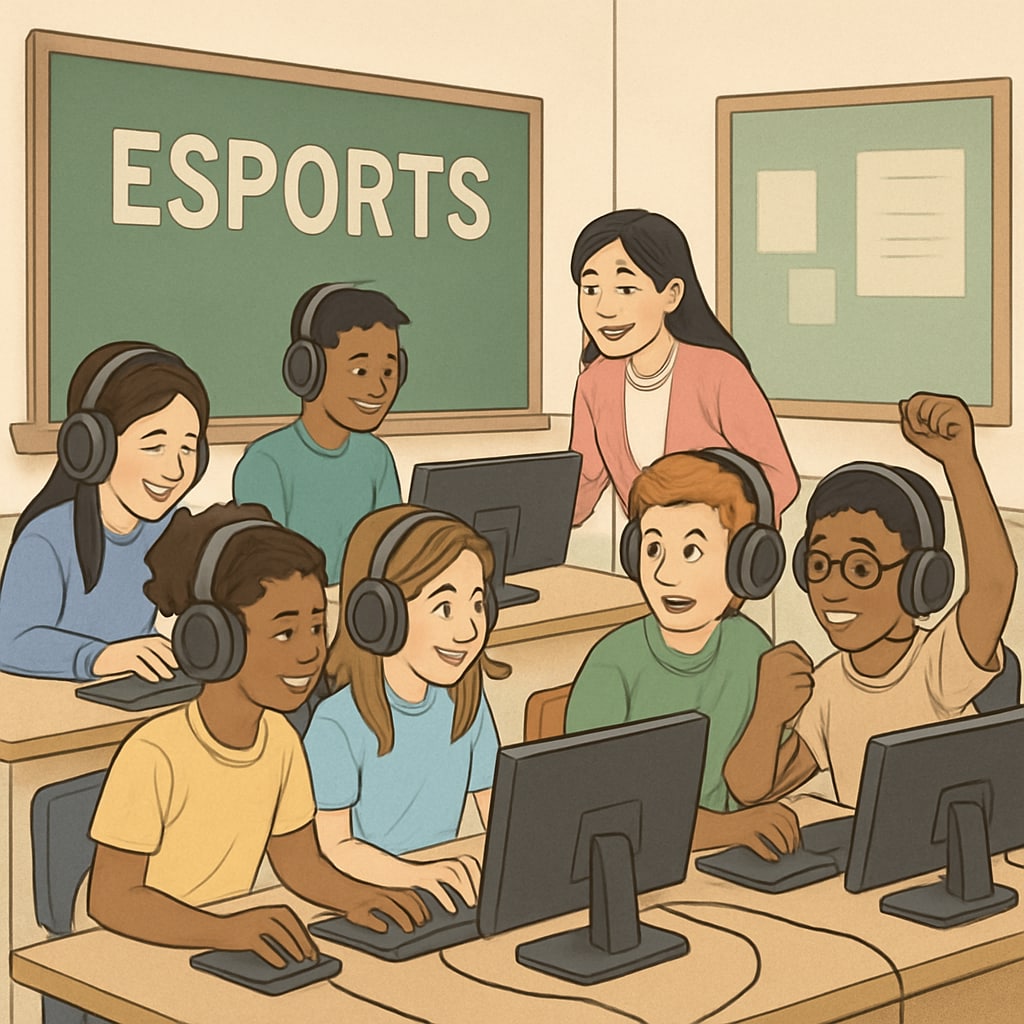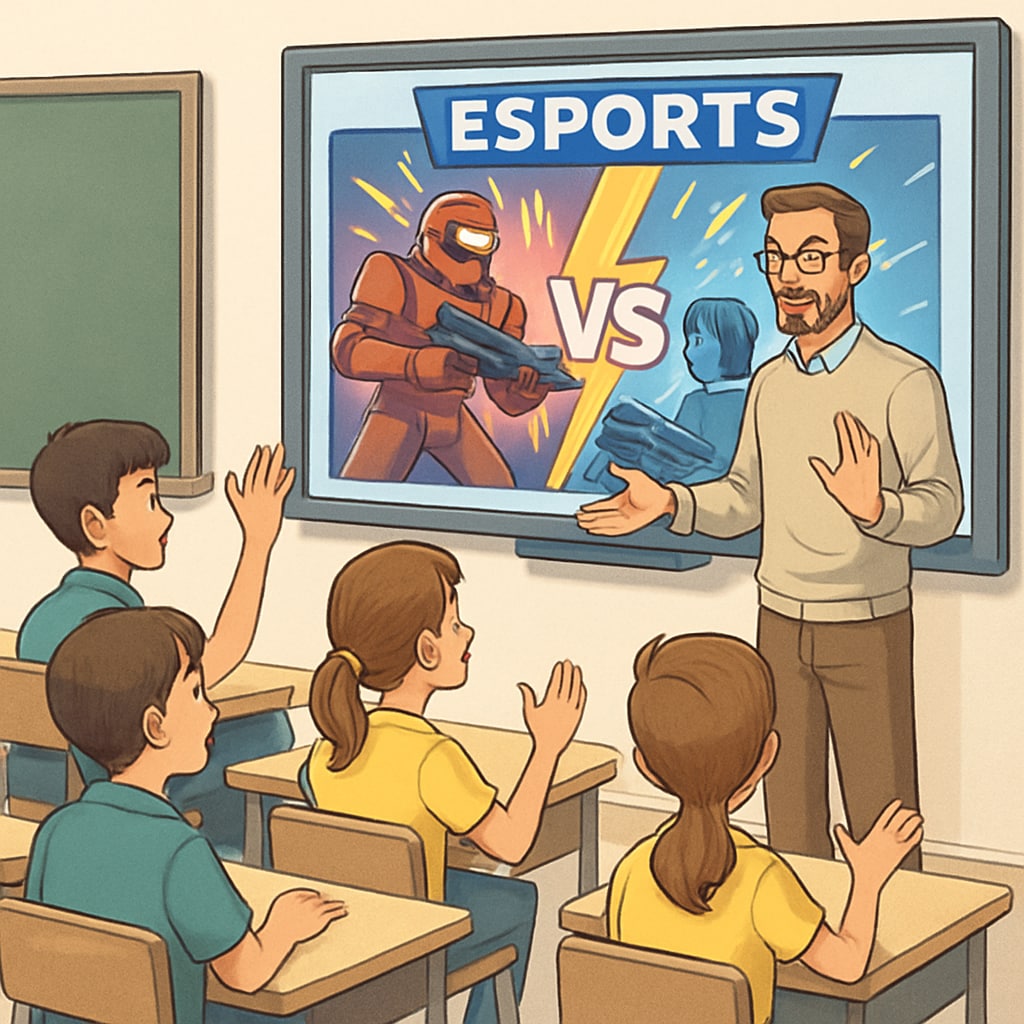In a groundbreaking move, GameClass and NASEF have joined forces to bring the power of esports to classrooms worldwide. This innovative partnership aims to promote game-based learning, a method proven to boost student engagement and academic performance. By integrating esports into the K12 curriculum, the collaboration is set to redefine how young minds experience education in the 21st century.
The initiative, supported by a global network of esports clubs, is designed to make learning fun and interactive. Students will not only engage in competitive gaming but also explore critical academic concepts through carefully curated activities. This represents a bold step forward in blending entertainment with education, ensuring students remain motivated and future-ready.
Why Esports and Education Are a Perfect Match
Over the past decade, esports has emerged as a cultural phenomenon, attracting millions of players and viewers globally. However, its potential as an educational tool is only beginning to be realized. Esports fosters teamwork, strategic thinking, and problem-solving—skills that are invaluable in academics and beyond. By incorporating esports into K12 education, GameClass and NASEF are leveraging this potential to create engaging and dynamic learning environments.
Additionally, game-based learning aligns with the preferences of Generation Z students, who are digital natives. Traditional teaching methods often fail to capture their attention, but esports provides a medium they are already passionate about. This approach offers a unique opportunity to teach core subjects like math, science, and language arts in a way that feels relevant and exciting.

GameClass and NASEF’s Vision for K12 Education
The partnership between GameClass and NASEF is built on a shared vision: to make education more inclusive, innovative, and aligned with the demands of the modern world. NASEF (North America Scholastic Esports Federation) has long been a pioneer in integrating esports into education, while GameClass specializes in developing interactive learning platforms. Together, they aim to create a scalable model that can be implemented globally.
The program will focus on key objectives:
- Enhancing core subject engagement through esports-themed lessons.
- Developing soft skills such as communication, leadership, and adaptability.
- Providing teachers with resources and training to effectively integrate esports into their classrooms.
As a result, students will not only excel academically but also gain skills that prepare them for careers in the rapidly evolving digital economy.

Challenges and Opportunities in Esports Education
While the potential benefits of esports education are immense, implementing such programs comes with its own set of challenges. For example, schools must invest in the necessary technology and infrastructure, which can be costly. Additionally, educators need proper training to effectively integrate game-based learning into their teaching methods.
However, the opportunities far outweigh the challenges. Studies have shown that students engaged in interactive learning environments demonstrate higher retention rates and better problem-solving skills. Furthermore, esports can serve as a gateway to STEM (Science, Technology, Engineering, Math) fields, encouraging students to explore careers in tech-related industries.
Organizations like GameClass and NASEF are actively addressing these challenges by providing affordable solutions and comprehensive training programs. Their collaborative efforts are paving the way for a future where esports is a standard part of the educational landscape.
The Global Impact of Game-Based Learning
The GameClass-NASEF partnership has the potential to impact millions of students worldwide. By promoting inclusivity and accessibility, the initiative ensures that students from diverse backgrounds can benefit from this innovative approach. Moreover, the global network of esports clubs enables cross-cultural collaboration, allowing students to learn from peers in different parts of the world.
As more schools adopt game-based learning, we may witness a shift in how education is perceived and delivered. By blending play with purpose, this model prepares students not only for academic success but also for the demands of a digital-first future.
In conclusion, the collaboration between GameClass and NASEF is more than just an educational experiment—it is a transformative movement. By integrating esports into K12 education, they are redefining what it means to learn in the 21st century. As this initiative unfolds, it holds the promise of inspiring a generation of students to think critically, collaborate effectively, and embrace lifelong learning.
Readability guidance: Keep paragraphs concise to improve readability. Utilize lists to summarize key points and ensure the text remains engaging for readers. Distribute transition words evenly for better flow and coherence.


